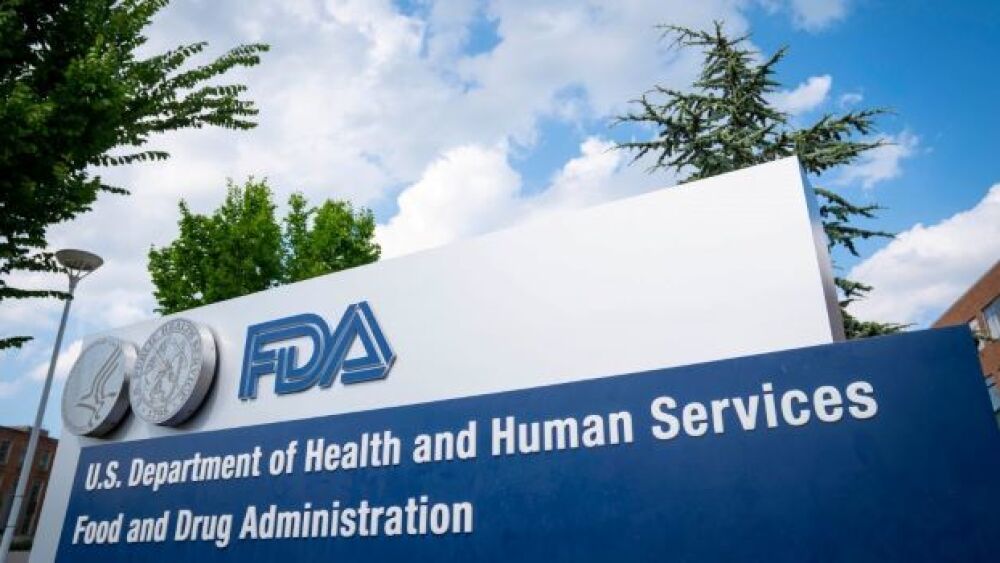For the second straight day, the FDA’s Cell, Tissue and Gene Therapies Advisory Committee voted unanimously to approve a bluebird lentiviral vector (LVV) gene therapy.
Sarah Silbiger/Getty Images
After two days of eagerly anticipated discussion, the U.S. Food and Drug Administration’s Cell, Tissue and Gene Therapies Advisory Committee voted on bluebird bio’s two lentiviral vector (LVV) gene therapies.
On bluebird’s betibeglogene autotemcel (beti-cel) for beta-thalassemia, the advisory committee was unanimous, voting 13 (yes) to 0 (no) on the question, “Do the benefits of beti-cel outweigh the risks for the treatment of subjects with transfusion-dependent beta-thalassemia?”
Beti-cel, or betibeglogene autotemcel, is a one-time gene therapy for beta-thalassemia in patients who require regular red blood cell transfusions. Phase III studies demonstrated that 89% of patients receiving the therapy achieved transfusion independence. Beti-cel has abeen approved in Europe and is marketed as Zynteglo, although the company pulled it from the market in late July due to pricing concerns, leaving all of Europe to focus on the U.S.
Andrew Obenshain, chief executive officer of bluebird, stated, “Despite advances in care, people living with the most severe form of beta-thalassemia still require frequent transfusions of healthy red blood cells to survive, tethering them to the healthcare system for life and increasing their risk for severe complications and early death. Today’s advisory committee recommendation is recognition of the substantial body of clinical data that support beti-cel as a potentially curative treatment option for these patients.”
Obenshain went on to thank the beta-thalassemia community members who contibuted to Friday’s discussion and said that bluebird is committed to working with the FDA as it completes its review of the BLA for beti-cel.
On Thursday, the advisory committee unanimously endorsed elivaldogene autotemcel (eli-cel), the company’s LVV gene therapy for cerebral adrenoleukodystropy, 15 to 0. Eli-cel, short for elivaldogene autotemcel, is approved in Europe under the trade name Skysona for early active cerebral adrenoleukodystrophy (CALD) in children ineligible for stem cell transplant from a matching donor. CALD is a serious neurological disorder caused by ABCD1 gene mutations. The disease, rare, progressive and X-linked, is ultimately fatal, with patients entering a vegetative state prior to death. There are no FDA-approved therapies.
Eli-cel leverages ex vivo transduction with the Lenti-D lentiviral vector to insert functional copies of the ABCD1 gene into a patient’s hematopoietic stem cells (hsc). The functional ABCD1 gene lets patients generate the ALD protein, which is believed to help destroy very long-chain fatty acids, which are thought to break down myelin, the protective sheath covering nerve cells in the brain.
The company’s application for eli-cel is based on positive efficacy data, although there have been some safety concerns. The trials were placed on a clinical hold in 2021 over safety concerns when a patient receiving the therapy developed myelodysplastic syndrome, a rare type of cancer.
“We are pleased that the advisory committee recognized the significant potential of LVV gene therapies to address severe unmet medical needs - demonstrated over more than a decade of research and more than 500 patient-years of experience - as well as the urgent need for improved treatments,” bluebird’s chief regulatory officer, Anne-Virginie Eggimann said. “We thank the FDA for convening this discussion on bluebird bio’s LVV gene therapies and look forward to the completion of the Agency’s review.”
Ahead of the meetings on Thursday, the Nasdaq halted trading of the company’s common stock. On Wednesday, shares closed at $3.73, up more than 3%. Since the beginning of 2022, bluebird stocks have dropped from $10.60 on Jan. 3, cratering 64%.
The timing is good because bluebird bio is running out of money. At a March investor call, the company warned that it was running short of funds. The company doesn’t bring in much revenue and it has made rounds of layoffs to keep the doors open.
The company has always had a bit of a contrarian reputation, from its insistence on lower case letters for its name to referring to its chief executive officers as the “chief bluebird.” It launched in 1992 under the name Genetix Pharmaceuticals, and after promising early trial data in 2010, brought in $35 million in funding from Third Rock Ventures and other top investment firms. It then changed its moniker to bluebird bio and picked a Third Rock partner, Nick Leschly, as its chief bluebird.
In January 2021, bluebird bio divided its genetic disease and oncology businesses. Bluebird stayed focused on severe genetic diseases. Leschly went with the oncology business, 2seventy bio. Andrew Obenshain took over as CEO of bluebird. Currently, 2seventy bio’s sole marketed product is Abecma (idecabtagene viclcucel), a B-cell maturation antigen (BCMA)-directed genetically modified autologous T cell immunotherapy for adults with relapsed or refractory multiple myeloma after four or more prior lines of therapy.





